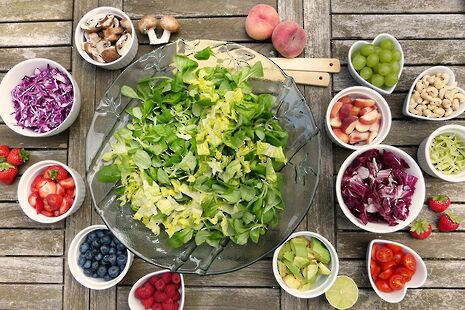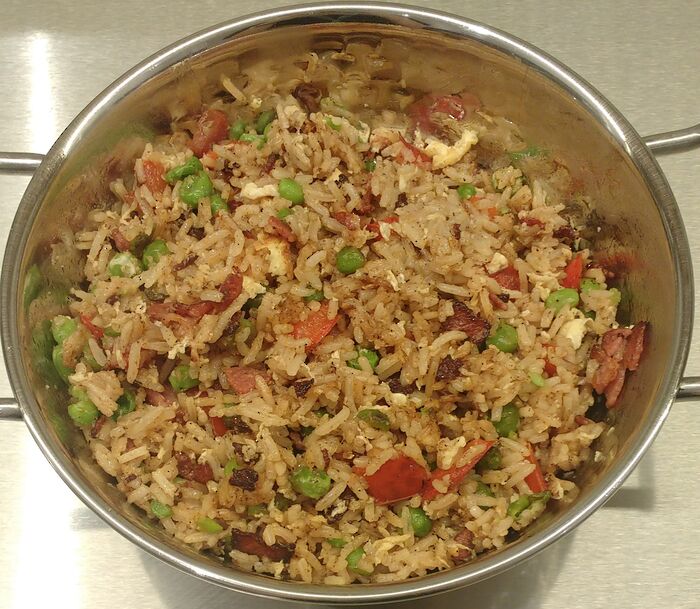Just Eat It – Against January’s Diet Culture
Phoebe Cranmer discusses what can be inherently damaging in the New Year’s weight-loss culture

CW: Mentions of diet culture and eating disorders
My New Year’s resolutions have always been about my body - specifically, and unoriginally - my weight. I expect I am not the only person who repeatedly goes through this pattern, but each January I seem to forget the misery of the restricted eating I label as a ‘resolution’.
I have kept all my old half-filled journals, and as such I can flick back to the various pages entitled ‘NEW YEAR’ and see the almost impressive consistency of my thinking:
- Lose weight (!!)
- Do not eat any bread or pasta
- Write down everything I eat
- Do not finish meals
- Do a lot of running
I will be the first to admit that this is slightly beyond typical dieting aspirations. The fact that these goals have been reoccurring for so long, since a young Year 7 age, forces me to question if the eating disorder I have happily boxed into the ‘A-Level’ part of my life can really be so tightly confined.
But, disordered eating or not, January is just a pretty bad time for our collective body image. The Christmas season comes to a close; the last cheeseboard is cleared away. As soon as that last cracker is eaten, we partake in a shared culture of guilt: those cheeseboards were overindulgent and now it is time to repent. The New Year hits like a tonne of bricks. (The bricks in this case being Instagram influencers holding up laxative teas or appetite-stopping lollipops, all in pretty pastel packaging). Take ‘Flat Tummy Co’, a subtly named company that is a January staple. Every fibre of the brand targets young women - it’s baby pink, they say #BabeOnAMission a lot and have Kardashian approval. They also talk a lot about ‘real women’ using their products and body transformations. They’re selling a temporary change (if that) but the cost is buying into a psychologically damaging industry. The adverts all scream ‘time to make yourself smaller’ and it is hard to disagree.
My resolution is not to shrink myself down or obsess over what I’m digesting
All of this would be fine if not for the inescapability of it. It is obviously fine to make the choice to get ‘healthier’, but it is equally fine not to - especially when that idea of ‘health’ is merely about weight and image. But this mad January diet culture makes that aspect of choice slip away. It seeps into us and grinds us down, it belittles us and often disguises itself as empowerment.
For people who struggle with body-image or eating disorders, the Christmas period itself can be awful too. With endless servings of lunch, parties and Cadbury’s selection boxes, those of us with a more complicated relationship with food suffer throughout December. Last year, when I was at my worst, I had no idea how to act. Christmas came with the expectation of family-time, and that came with communal meals and celebrations. It was the time to eat, drink, be merry and be present. But eating was incredibly stressful and it made it difficult to be merry.
That link between meal-times and socialisation is a year-round problem, and it’s woven into most of our social interactions. In Cambridge, colleges (at least in first year) give you little option but to go their cafeterias, which can be stressful. At its most simple some people aren’t at a point where they want to eat anything, and some may be panicked by being unable to control what is on the menu. On top of that, there’s the public display of eating - the worry of comments from friends if you don’t eat that much. But, if you don’t go down to eat, a key aspect of Cambridge socialisation is unavailable to you. In exam term, when more and more people unfortunately develop poor food habits or eating disorders as a side-effect of stress, this is amplified. If the main revision break is going down to dinner, but you are not eating dinner, you miss out on the time designed to lure you out of your room and into the real world.
The term structure of student life also lends itself keenly to the mad January diet culture. New Year brings with it a new term, and the two go hand in hand for people to think about life changes. Christmas becomes a bit mystical; it was a separate dreamlike time which has to be made up for. I wonder if, ironically, overindulging a bit more often might make our society a bit more healthy. That if, instead of allowing December to be the singular month of eating and January being the singular month of not-eating, we spread that burden a little more evenly across the rest of the year. It would be collectively healthier to shed the feast or famine mentality that we apply to the seasons.
So, for the first time in a long time, my resolution is not to shrink myself down or obsess over what I’m digesting. I’m going to remain calm and rational (at least in terms of this) and step into 2019 without thinking I have to have a new body to tackle it.
 News / Cambridge academics stand out in King’s 2026 Honours List2 January 2026
News / Cambridge academics stand out in King’s 2026 Honours List2 January 2026 Interviews / You don’t need to peak at Cambridge, says Robin Harding31 December 2025
Interviews / You don’t need to peak at Cambridge, says Robin Harding31 December 2025 News / AstraZeneca sues for £32 million over faulty construction at Cambridge Campus31 December 2025
News / AstraZeneca sues for £32 million over faulty construction at Cambridge Campus31 December 2025 Comment / Plastic pubs: the problem with Cambridge alehouses 5 January 2026
Comment / Plastic pubs: the problem with Cambridge alehouses 5 January 2026 News / Cambridge businesses concerned infrastructure delays will hurt growth5 January 2026
News / Cambridge businesses concerned infrastructure delays will hurt growth5 January 2026









